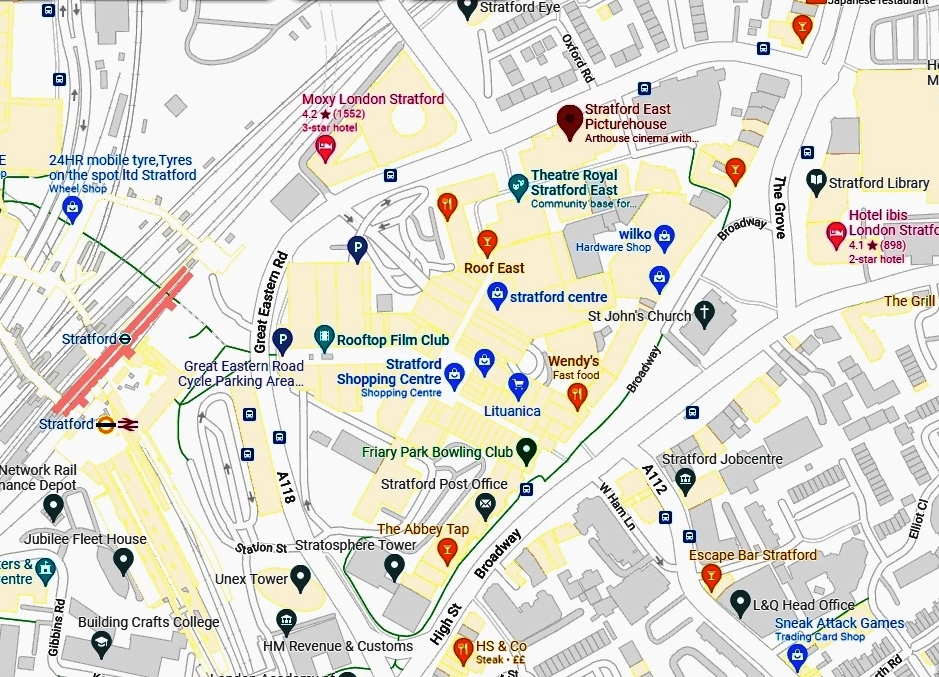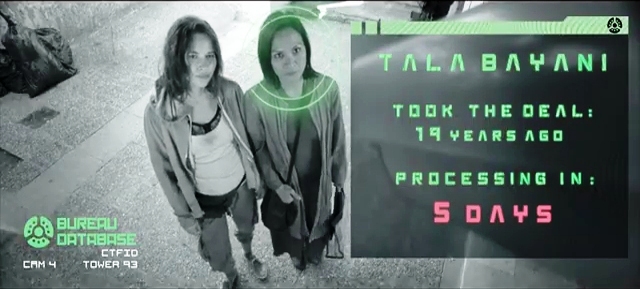Convention Review
Sci-Fi London
Convention or Festival?
Sci-Fi London in the context
of the SF convention scene.
The Sci-Fi London film Fest began in the iconic year of 2001 and so by rights the 2022 event should have been the 22nd in the series but, alas, we have had the CoVID-19 lockdown years which saw a hiatus in physical events. However, 2022 saw conventions resume. Being held in May was also a plus as that month is part of the reduced CoVID summer season, and even if vaccinated, that is a plus.

Evolution of SF conventions and fests
SF conventions and film fests come in all sorts of flavours. For example, if you like small, personal gatherings with a few seasoned directors and actors, and your fantastic films with a veer towards vintage fantastical horror, then Manchester's Festival of Fantastic Films will be your bag. Conversely, Sci-Fi London is a little bigger with a firm science fiction focus within the fantastic film spectrum and it is where you can see the latest SF offerings primarily from independent film makers.
Film fests today are most welcome and serve a most useful role. I remember, back in the day (the 1970 and '80s) SF conventions such as the British national Eastercon and the regional Novacon (the two stalwarts of the SF diary back then) always included films. In the 1970s, we only had three television channels and the local cinema. So if you did not see a film on general release then you had to catch it should it happen to air on TV. Those were your only choices and sometimes, if you knew a film was going to be broadcast on television, you would especially stay in or have a get together with a few friends to watch it. So having films at conventions was a real plus.
By the mid-1980s video tape players and recorders were beginning to become common and by the late '80s even every medium-sized village had their own video tape rental shop. However, films at SF conventions were still valuable as if you had someone who was cinematically literate on the convention organising team, they could provide access to rarely-seen independent offerings. The problem was having someone who was cinematically literate on the convention committee and this was rare. That, and the sheer hassle of projecting films, meant that the stalwart SF conventions in Britain began to drop their film programmes. Having said that, some conventions get their act together and occasionally put on brilliant film programme streams: the 2007 Eurocon and 2010 Worldcon, for example, had excellent, well thought out film programmes.
Today, post 2010 and in the 2020s, with most SF cons sadly eschewing films, even with a plethora of television channels, there is almost paradoxically a greater need for films at conventions. The broadcast channels tend to buy films for screening a number of times, and some channels are clones of other channels but time-shifted one hour. So the choice of films though not bad, is not as good as it might be. And then in the 2020s we have films made by streaming platforms, which is all well and good unless you don't subscribe to them. Indeed, there are today so many streaming platforms that few subscribe to them all: most don't and so miss out on their SF unless they buy the DVD (which, in any case, are now going out of fashion).
Also today, the technology has so improved and become cheaper, that it is far easier for independents to make their own films on a reasonable budget. All this means is that there is a lot of new film, as well as vintage offerings, out there, it is just a question of finding the good stuff. This is where film fests come in. They do the research for you and all you have to do is decide what you want to watch.
Some film fests are run very much like an SF convention. For example, the Festival of Fantastic Films was founded by Harry Nadler and Tony Edwards. Both hail from the UK Eastercon scene of the 1960s and '70s and that Fest up to Harry's passing was run very much like an SF convention which included having Progress Reports typically nine and four months in advance of the event. These are very important if you are to attract people from a way off and those who have limited annual leave and/or need to book it in advance; such folk need tempting. Other film fests, have less of a convention feel.
Sci-Fi London is run more as a pop-up event, though this in fact would be doing it a bit of an injustice and belies the value of its content. The community feel is there but there seems an element of last-minute organisation about it. If you know about Sci-Fi London then great, if you do not then your finding out about it and some of the ancillary information you will need if you are to decide to attend from outside the area is all rather happenstance. This, in part, is why this article is being written.

Venue
Up to recent years, Sci-Fi London was based around Piccadilly and mainly at the Apollo West End in Lower Regent Street but today has a new home at the Stratford Picture House in East London. It is actually very easy to get to if you live in London as the Stratford Picture House is literally six minute's walk from Stratford rail station with its underground (metro), rail and DLR (district light rail) connections. If you are coming from further away, so commuting is not really an option, there are hotels nearby: two well within five minutes walk from the venue (see map below).
The Stratford Picture House itself has two screens and a reasonably sized bar / café area. It is also next door to a Pizza Express (see picture above) that has an outdoor area, and both the restaurant and Picture House face onto a small pedestrian square which has a few public seats if you need a break from the indoors.

The Programme
The Programme has changed a little over the years. There used to be an SF film 'pub quiz' and ancillary events which some years included the presentation of the Clarke (book) Award. These extras did add something, though they can take a little organising: quizzes need questions after all.
Most years prior to the CoVID hiatus the programme had two streams of feature films. There are also usually four or five sessions of short films. In 2022 there were five, each of these short film sessions having its own theme: not what it seems; robots; alien food; artificial intelligence; and dystopias. The beauty of having a session of several short films is that if there is one you do not like there will be another along in 15 minutes time.


